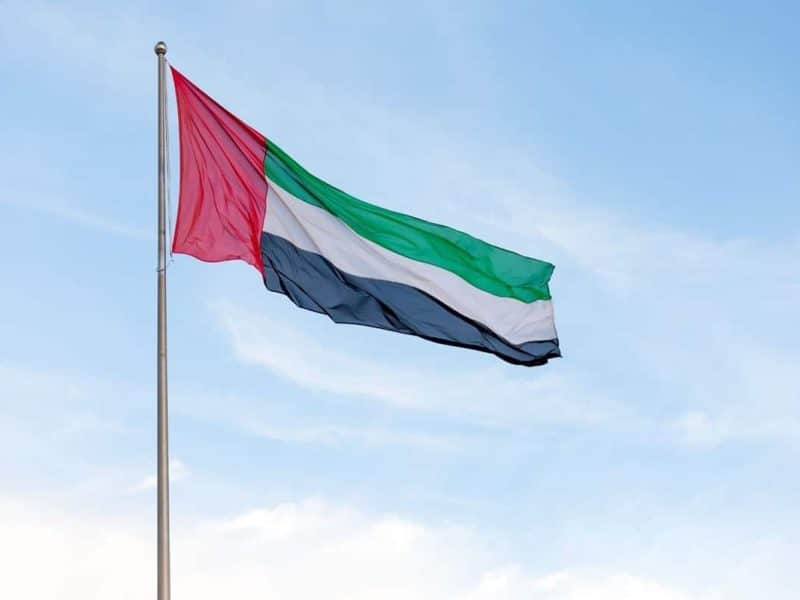As 2022 approaches, some in the region may be prepared to declare a tentative victory, at least economically, in the battle against the pandemic. While undeniably impactful on a range of industries, technology paved the way for continuity and, paradoxically, many success stories.
“We saw significant changes in our societies and economies as a second wave of digital transformation swept every industry,” said Celine Bremaud, vice president of sales, marketing and operations, Microsoft Middle East and Africa.
“Remote working and distance learning were just the beginning. Cloud adoption soared, and AI, IoT, mixed reality and other technologies played starring roles, enabling organisations to first adapt and survive, and then innovate, and thrive.”
Bremaud cited research from IDC that estimates the cloud and Microsoft ecosystem are set to add more than $31 billion of new revenue by 2024 to economies in the UAE, Qatar, Oman, and Kuwait, while creating more than 121,000 jobs.
This is what transformation looks like
“In the post-pandemic world, these technologies will be put to work addressing our most pressing challenges – food security, environmental sustainability, youth enablement and more – leading to an inclusive recovery,” she explained, stressing the importance of “responsibly and shrewdly implemented artificial intelligence” in transforming businesses from reactive to proactive entities.
“Retailers can gain more complete views of their customers,” she said, “allowing them to individualise experiences and build better brand loyalty. Airlines, hotels, and restaurants can build innovative ecosystems of apps and data in which the customer is a real-time participant in the optimisation of their own experience. Manufacturers can use the Internet of Things, machine-learning, and the power of rich datasets to offer predictive maintenance to customers while driving new revenue streams and business opportunities. And healthcare organisations can achieve breakthrough innovations in treatments and patient engagements.”
During 2019, Microsoft launched four data centres in the region – two in the UAE, and two in South Africa – to deliver a range of digital capabilities to the Middle East and Africa market. The company explained its decision by citing demand among customers for its cloud services.
These data centres also became the accelerators of digital transformation enabling governments, organisations and even small businesses in their pursuit of business continuity, operational agility, security, and compliance in the year of the pandemic.
Preparation, preparation, preparation
When the pandemic struck, research by the Economist Intelligence Unit suggested the FSI sector was most prepared for the crisis, followed by government and retail. But the Economist also pointed out that other industries were forced to accelerate digital transformations amid lockdowns.
Bremaud believed that skills and technology are vital in allowing businesses to adapt to disruptions more nimbly.
“As companies continue to balance in-person and remote teams, business leaders are looking for solutions to foster the social capital, cross-team collaboration, and spontaneous idea-sharing that’s been driving workplace innovation for decades,” she said. “Therefore, investing in people and their capacity is critical to create new solutions to meet the challenges of a rapidly changing economy.”
During the pandemic, Microsoft Teams implementations led to around 30 million students and teachers going online across the region. The company also launched several partnerships aimed at youth empowerment. Over the past two years, according to Bremaud, Microsoft has trained more than 16 million young people across MEA in skills relevant to the digital economy.
Reach every part
“Creating a positive impact on society has always been at the heart of what we do,” she said. “From empowering women in the region, to helping social entrepreneurs solve challenges such as water scarcity, sustainability, food security and more – we are ensuring that our technology and resources reach every part of society.”
Over the past two years, Microsoft has given more than 70 grants in 20 countries across MEA aimed at accelerating innovation and addressing challenges in key areas such as climate change, agriculture, biodiversity, and water. The company has also engaged in industry-specific initiatives such as the Microsoft Energy Core – an endeavour that collaborates with the energy sector to drive sustainability and climate innovation in across the region. Also launched this year was the Microsoft Manufacturing Core, a similar initiative dedicated to unlocking the potential in the manufacturing sector.
The company is also putting great focus on sustainability and the environment. It has gone on the record with an ambitious emissions goal, announced by CEO Satya Nadella and other senior executives this year. Not only does Microsoft intend on being carbon-negative by 2030, but pledges to have removed all its historical carbon emissions by 2050. And it is on a mission to enable its customers to deliver similar results.
“The Microsoft Cloud for Sustainability, as well as the Microsoft Emissions Impact Dashboard, will empower organisations to more effectively record, report and reduce their carbon emissions on a path to net zero,” said Bremaud.
The road ahead
Technology infrastructure is key to Microsoft’s ambitions on digital transformation, security sustainability and a range of others. In addition to the four MEA cloud regions it launched in 2019, two more of its datacenters are on the way.
“We also made strategic investments such as the Africa Development Centres to boost talent and innovation, as well as policy innovation centres to empower the region’s stakeholders in laying the foundation of the digital economy,” Bremaud said. “These efforts combined, are set to reboot MEA’s economies while creating jobs, building next-generation workforces, and driving impact in our communities.”









